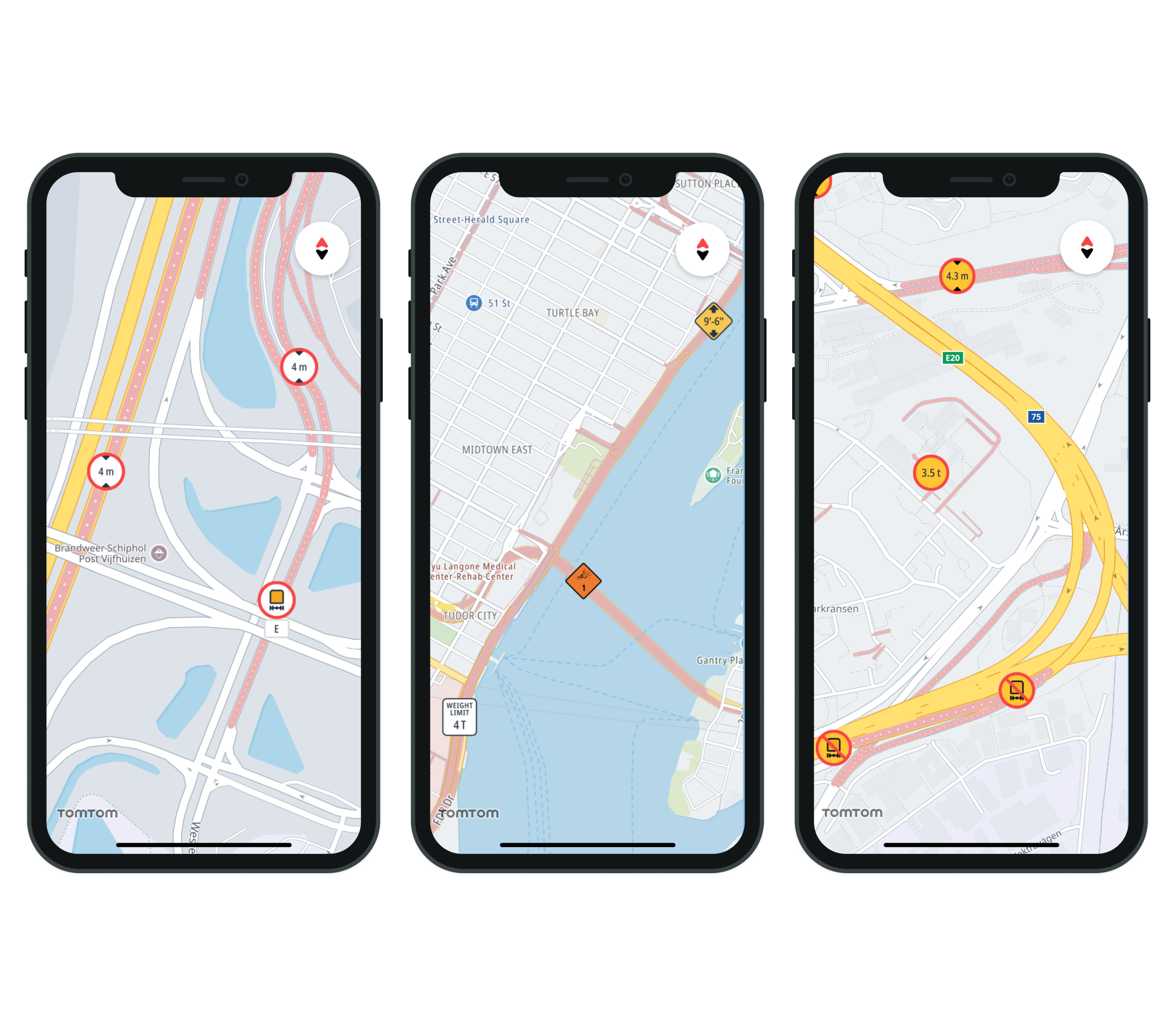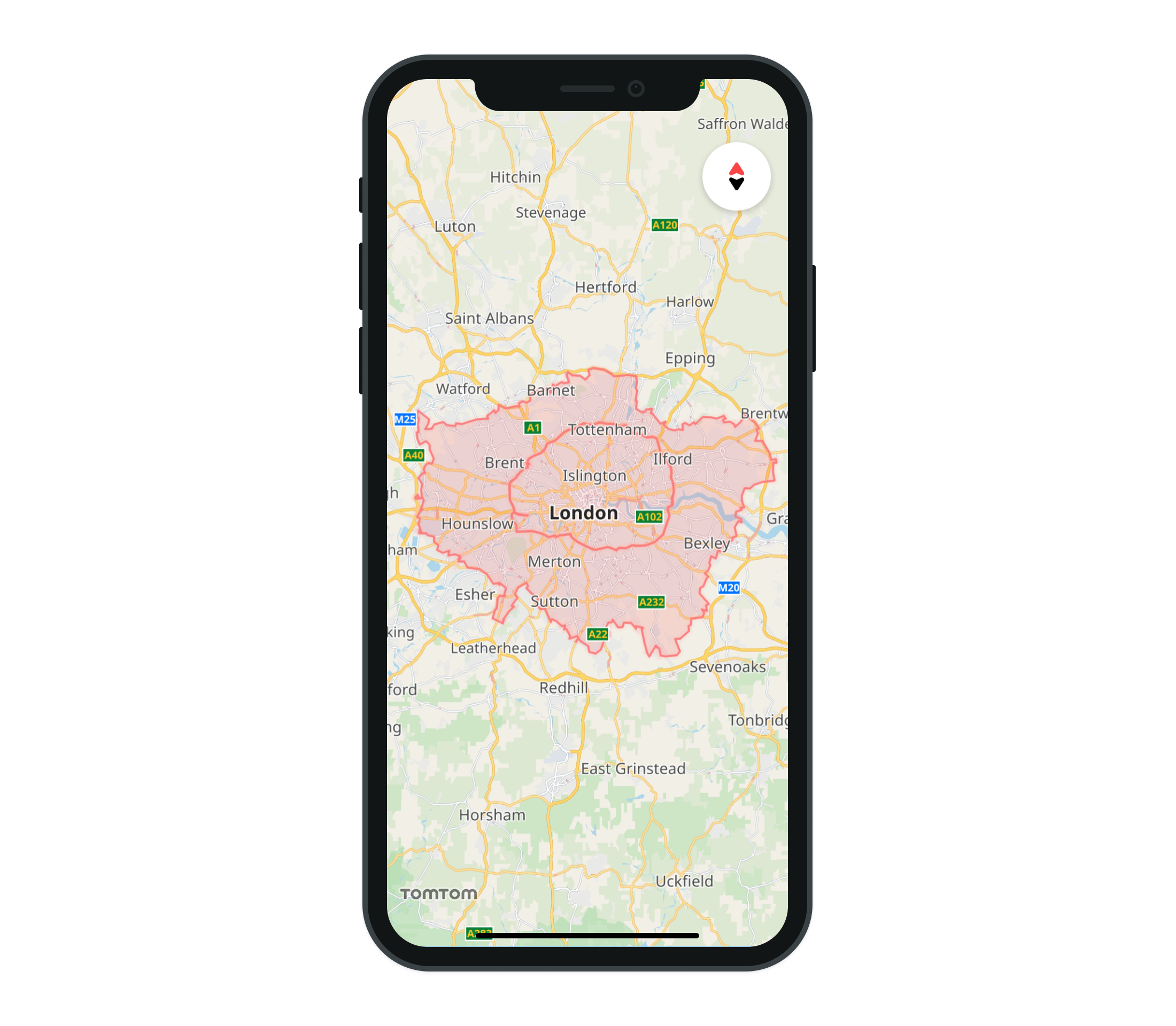Vehicle Restrictions
Vehicle restrictions define which vehicles are allowed to use specific roads. Traditionally, they’ve been used to control access for trucks, delivery vans, and scooters. In recent years, climate and pollution regulations have introduced additional rules, such as those targeting electric vehicles (EVs) and high-emission vehicles. The Map Display SDK allows you to apply these restrictions to a vehicle defined by the user.
The Vehicle restrictions API is available through the TomTomMap object. To enable vehicle restrictions in your app, load the pre-defined StyleContainer.restrictionsStyle.
map.styleContainer = .restrictionsStyle
Next, define the vehicle by importing:
import TomTomSDKCommon
This provides access to the Vehicle protocol:
1let dimensions = try? VehicleDimensions(2 weight: Measurement.tt.kilograms(8000),3 axleWeight: Measurement.tt.kilograms(4000),4 length: Measurement.tt.millimeters(8340),5 width: Measurement.tt.millimeters(4650),6 height: Measurement.tt.millimeters(3445),7 numberOfAxles: 38)9let vehicle = Truck(10 maxSpeed: Measurement.tt.kilometersPerHour(120),11 isCommercial: false,12 combustionEngine: nil,13 electricEngine: nil,14 dimensions: dimensions,15 hazmatClasses: [.intlExplosive, .intlGeneral, .unClass2Gas, .unClass1Explosive, .unClass6Toxic],16 adrTunnelRestrictionCode: .b,17 modelID: VehicleModelID("Fancy Truck")18)
To show vehicle restrictions, it is important to ensure that the restrictions style is fully applied to the map. Since setting the style container is an asynchronous operation, you must retrieve the prepared map asynchronously before attempting to show vehicle restrictions.
1mapView.getMapAsync { map in2 do {3 try map.showVehicleRestrictions(vehicle: vehicle)4 } catch {5 print("Failed to show vehicle restrictions: \(error)")6 }7}

To hide restrictions:
try? map.hideVehicleRestrictions()
To apply changes after updating vehicle restriction parameters:
try? map.updateVehicle(vehicle)
Low-emission zone

A low-emission zone is enabled by default using the pre-defined StyleContainer.restrictionsStyle.
Supported vehicle restriction types
| Europe, Canada | Norway, Iceland, Sweden | US | |
No access |
|
|
|
Height limit |
|
|
|
Width limit |
|
|
|
Length limit |
|
|
|
Weight limit |
|
|
|
Axle weight limit |
|
|
|
Hazardous Materials |
|
|
|
Goods Harmful To Water |
|
| does not occur |
Explosive Materials |
|
| does not occur |
ADR (B, C, D, E) |
|
| does not occur |
UN Dangerous Goods Class
Explosives, Gases, Flammable Liquids, Flammable Solids, Oxidizing And Organix Substance, Toxic And Infectious Substance, Radioactive Material, Corrosives, Miscellaneous Dangerous Goods |
|
Next steps
Since you have learned how to work with vehicle restrictions, here are recommendations for next steps:



































